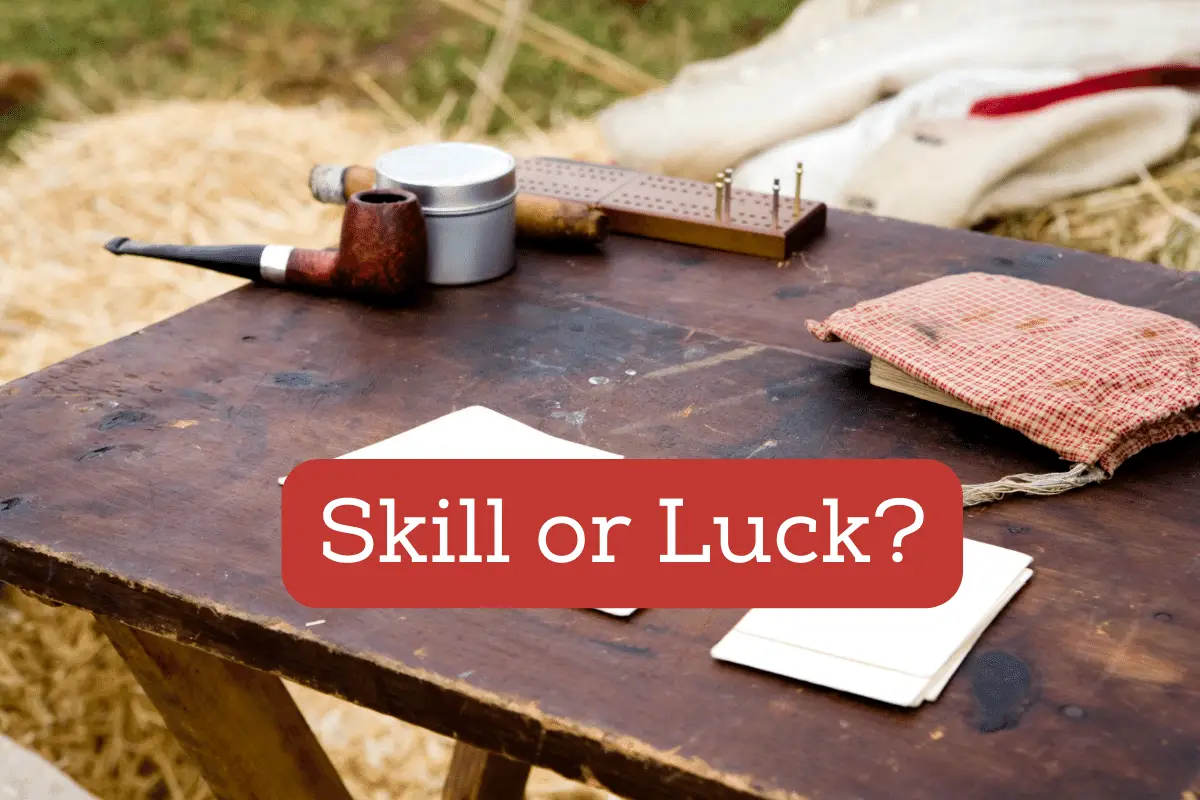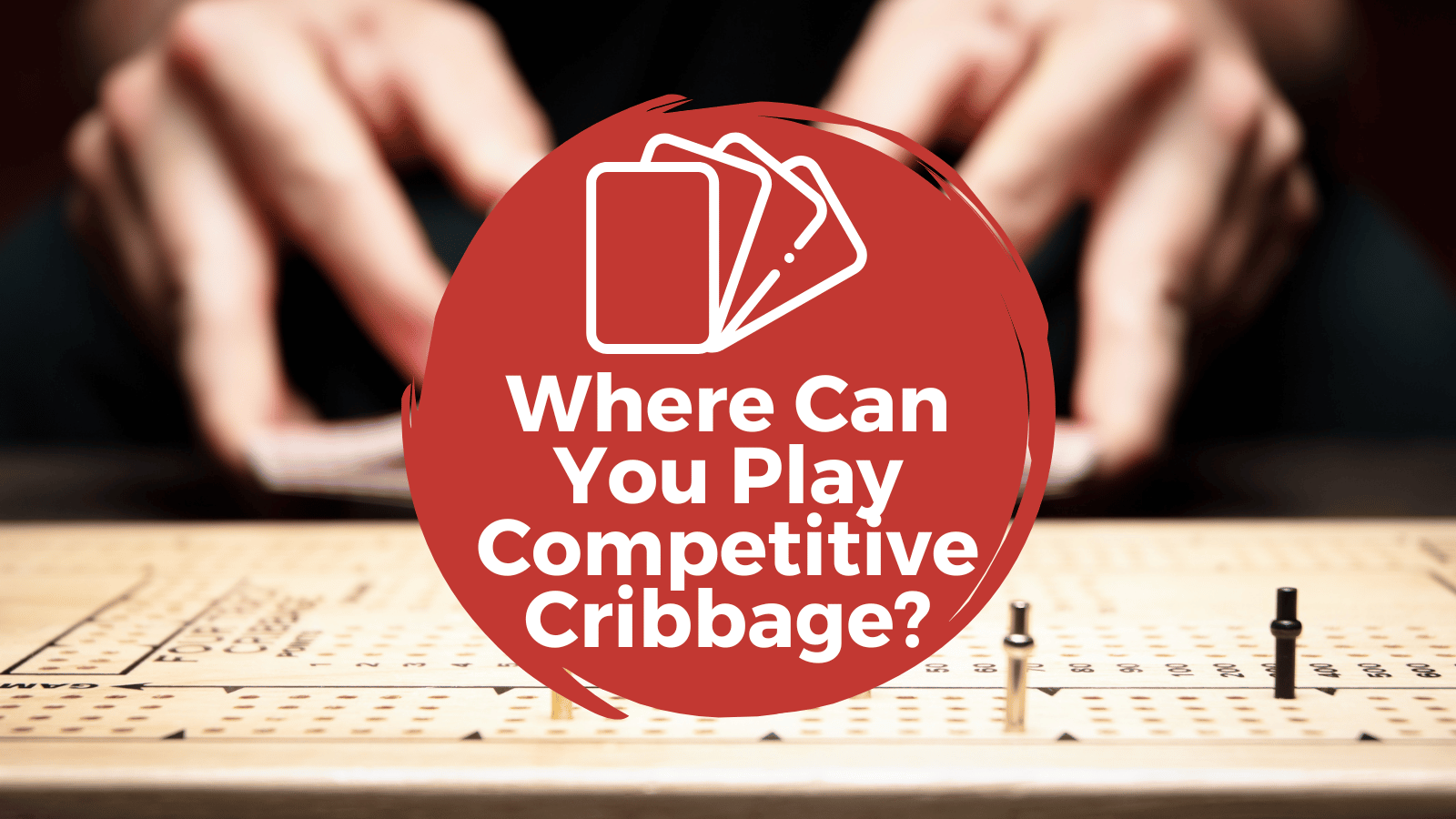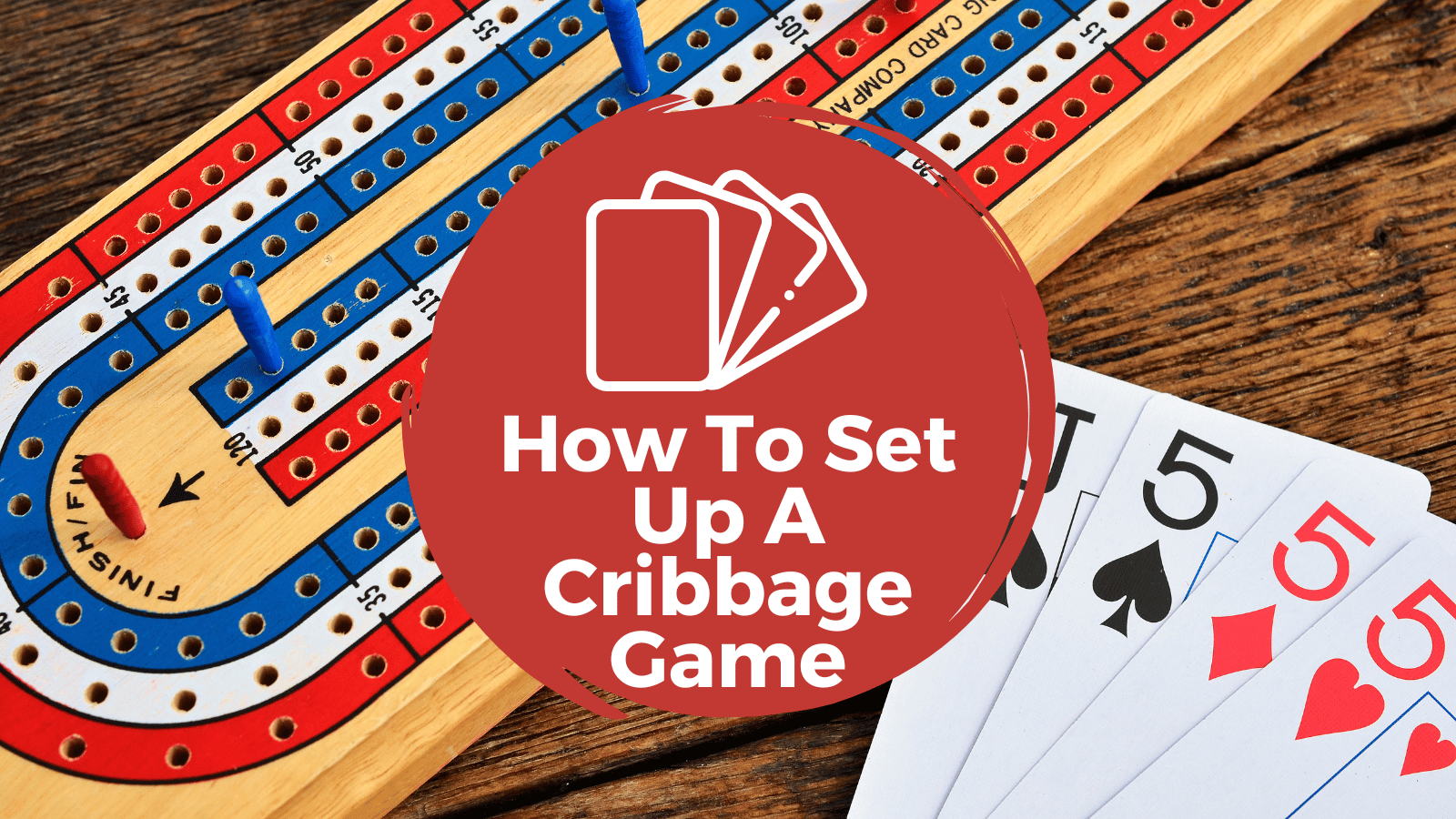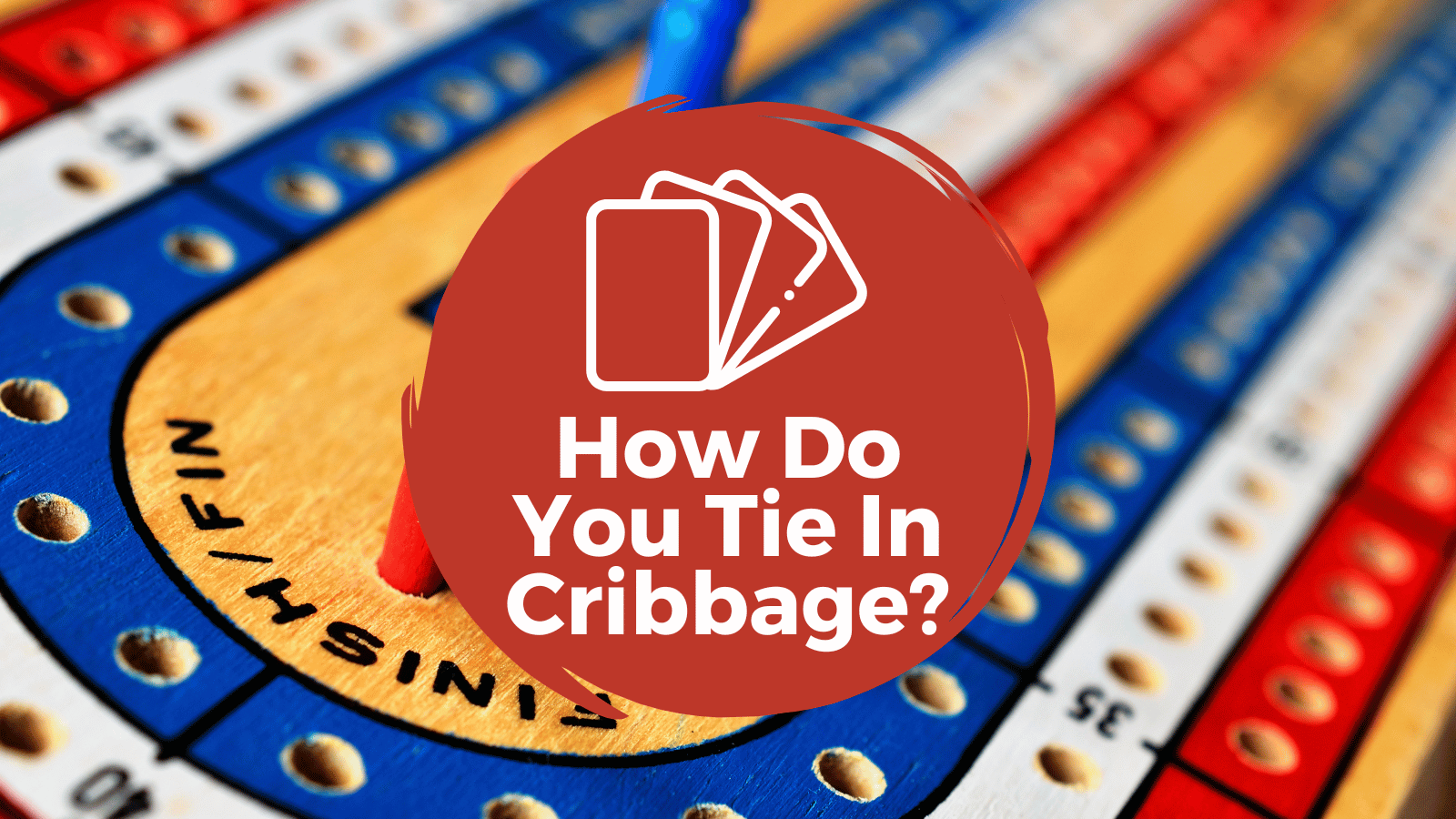Cribbage is a great game to play, but there are those new to the game who wonder how you get better.
Some people don’t see how skill and strategy make a difference in the game, but it’s there!
What they’re really asking is: Is cribbage a game of skill or luck?
Cribbage is a game involving equal parts skill and luck. Luck affects the cards you receive, but it’s your skill in discarding and pegging that separate the different levels of players. However, luck will always play an equalizing role, making it possible for a newer player to beat a more experienced one on occasion.
Let’s dive more into the topic of luck vs. skill in cribbage to see how it affects the game.

Want to take your Cribbage game to the next level? Check out this massive list of strategies for improving your game!
Table of Contents
Skill And Luck In Cribbage
I’ve played a lot of card games and board games in my life, and I love most types of games, but the ones I HATE the most are ones where there is no strategy.
If a game is entirely based on luck, there’s no point in having someone play it at all.
Games wholly based on skill, like chess or checkers, are still a lot of fun.
I love chess, though I’m not great at it (my rating is around 1400 for those of you who care).
But when a game has a combination of skill and luck, like cribbage, I find it to be a lot of fun!
Cribbage is around 60-70% luck and 30-40% skill.
It’s enough that the better player will usually win, but not always.
Let’s look at in more detail how luck and skill affect a cribbage game.
Elements Of Skill In Cribbage
First, let’s look at what we, as players, can do to impact the game.
Arguably, the most important strategic element in the game is what you discard.
The two little cards you throw in the crib (whether it’s yours or the dealer’s) directly affects how many points you earn, and it’ll also affect what you can play during the Play or pegging phase.
Mid-level players follow the same tenets of strategy in the discard, and it works out well for them 80-90% of the time. (See the quick strategies later on.)
High-level players use an understanding of statistics and position to better determine what cards are likely to be cut or discarded by their opponent.
In this way, high-level players seek to almost manipulate luck in their favor.
Pegging or the Play is another strategy-driven portion of the game.
Pegging is almost entirely devoid of luck, outside of what you and your opponent are dealt.
It’s a matter of choosing the right cards and anticipating what your opponent has.
Positioning in cribbage is another element with some strategic elements.
Depending on where you are, especially at the end of the board, you may want to opt for lower cards to get more points while pegging.
The best players know how to anticipate what the end game will look like and adjust to give themselves the best position to win.
Remember, in cribbage, the first player to hit 121 points wins no matter where you’re at in hand.
Elements Of Luck In Cribbage
As much strategy as there is in cribbage, luck plays a huge role in how each round goes down.
The strategy will only get you so far if you can’t do anything with the cards.
The cards you get in your hand, the starter card cut by the Pone (non-dealer), and even who goes first has a direct impact on how the game shakes out.
Statistics (as with other games like poker) will do some to offset the effect of luck, but without knowing what your opponent has, there is only so much to do even with that knowledge.
What Do People Think About Skill And Luck In Cribbage?

The answer to what most people think of cribbage in terms of skill vs. luck is tough.
YouGov ran a poll where 15% more people thought cribbage had more skill than luck.
Of course, personal experience with the game will affect how you perceive it.
If a new player plays against a great player, they’re more likely to say it was the skill of the player that beat them.
And in this case, it’d be true.
But if two pros played each other, they’d agree that at that level, luck plays a much more important role.
We also need to consider a player’s opinion of the game.
Most people who responded to the poll probably like cribbage a lot.
They feel a need to defend the virtue of their game by playing on the skill aspect of it all.
For a more objective look, I like to consider what DeLynn Colvert, famed pro cribbage player and author of Play Winning Cribbage, said on the subject.
According to him, he would expect an expert to beat a novice (someone following basic strategy) 70% of the time.
This is shocking compared to many games! That means an average person could win 30% of the games.
The difference here is wholly in luck.
How Does Skill Affect Win Percentage?
The top cribbage players throughout history win only 55% of the time.
This means that if two people are equally skilled, they’d be virtually equal in win percentage.
Pros know how to maximize their chances of having good “luck” through statistical analysis.
Why Is Luck Great In Card Games And Board Games?
I love it when there is an element of luck in card games and board games.
But for me to better illustrate why luck is great for everyone in games, we need to look at a game with zero luck, chess.
Chess has no luck at all.
If both players make no mistakes, the game will end in a draw.
At the World Chess Championships, most of the games end in a tie, and it’s the slightest slip-up in skill and strategy that determines the winner.
This means if I play someone better than me, I will lose most of the time, if not every single time.
As a mediocre player, this also means if I play the average person, I will win almost every single time.
That’s not so fun. And it’s not fun for the people who are losing.
I love playing chess with people around my level and a little higher. It’s a challenge.
But outside the range, you’re kind of limited.
With cribbage, luck is an equalizer.
Remember, even an expert will be beaten by a novice around 30% of the time.
This gives everyone a chance to win.
My friends who love board games don’t always like to play chess with me, but they’ll always play cribbage.
Check out these cribbage variations for new ways to play!
Quick Cribbage Strategies
Discard
Follow these principles, and you’ll get your discards right 90% of the time:
- Keep the best combination of points for yourself (after adding in points for your crib or subtracting any points you give to the opponent crib).
- When all else is equal, keep runs or consecutive cards together.
- 5s in the crib almost guarantee at least two points.
- The most common cut card value is 10 (all the face cards and tens).
- Avoid giving your opponent’s crib a 5 or cards that add to 5.
The Play/Pegging
Pegging is a tricky and active part of the game. There’s a lot to consider, but here are some general tips:
- Never lead with a 5 unless you have to.
- Avoiding leading with a 10-value card unless you have a 5 (then you can pair it if the opponent plays it).
- Lead with a card you have a pair of. If the opponent pairs it, follow up with your other one for a Royal Pair of 6 points!
- 3 and 4 are the safest leads.
- Keep an eye out for runs! Remember, they don’t need to be in order.
- Don’t make 21 if possible. Most people have a 10-value card held back to make 31 and get two points.
- Be aware of the deadly 4-5-6 combo from the start. It adds to 15 and gives you a run for 5 points.
- Play high cards early to avoid getting stuck with a Go!
Steps For Getting Better At Cribbage
If you want to get better at cribbage, there are a few steps to consider as you go forward.
I found these really helped me, and they helped me get to a moderate level of skill.
I’ve noticed a definitive increase in my skill from these four simple steps.
Play More
The first tip is obvious, but here it is:
You’ll never get better unless you play more.
If you don’t have people to play with, download any cribbage app or online game and play online there.
The competition is pretty stiff; most people who choose to play online are quite good.
But remember, luck can always help you win, even if you’re not as skilled.
If you know any places that play cribbage in person, check those out too!
Read Books
Books are no replacement for playing, but getting some good books will help you get a better insight into how high-level cribbage players think about the game.
Many of them get really into discard strategy and statistics, but they also cover more general strategies and ideas to make anyone’s playing better.
If you want a great book for beginner and advanced cribbage strategy, check out Cribbage: How To Play And Win.
Use Practice Tools
Discard strategy is one of the most important elements of skill in cribbage, so it makes sense that to get better, you need to use some practice tools to get better.
There are a few out there, and they all tend to be around the same idea:
You get a random 6-card hand and have to determine the statistically best discard.
My favorite one is the Crib Assistant tool found at the link.
Keep A Hand Journal For Later Analysis
I live by my notebooks. I keep notes in there for all kinds of things for myself.
And yes, I’m a nerd. I have a cribbage journal.
In it, I write down questionable hands I get for later analysis.
I don’t write down every hand. Some are really obvious with what you want to keep.
But if I have any questions, I write them down for look-up later.







